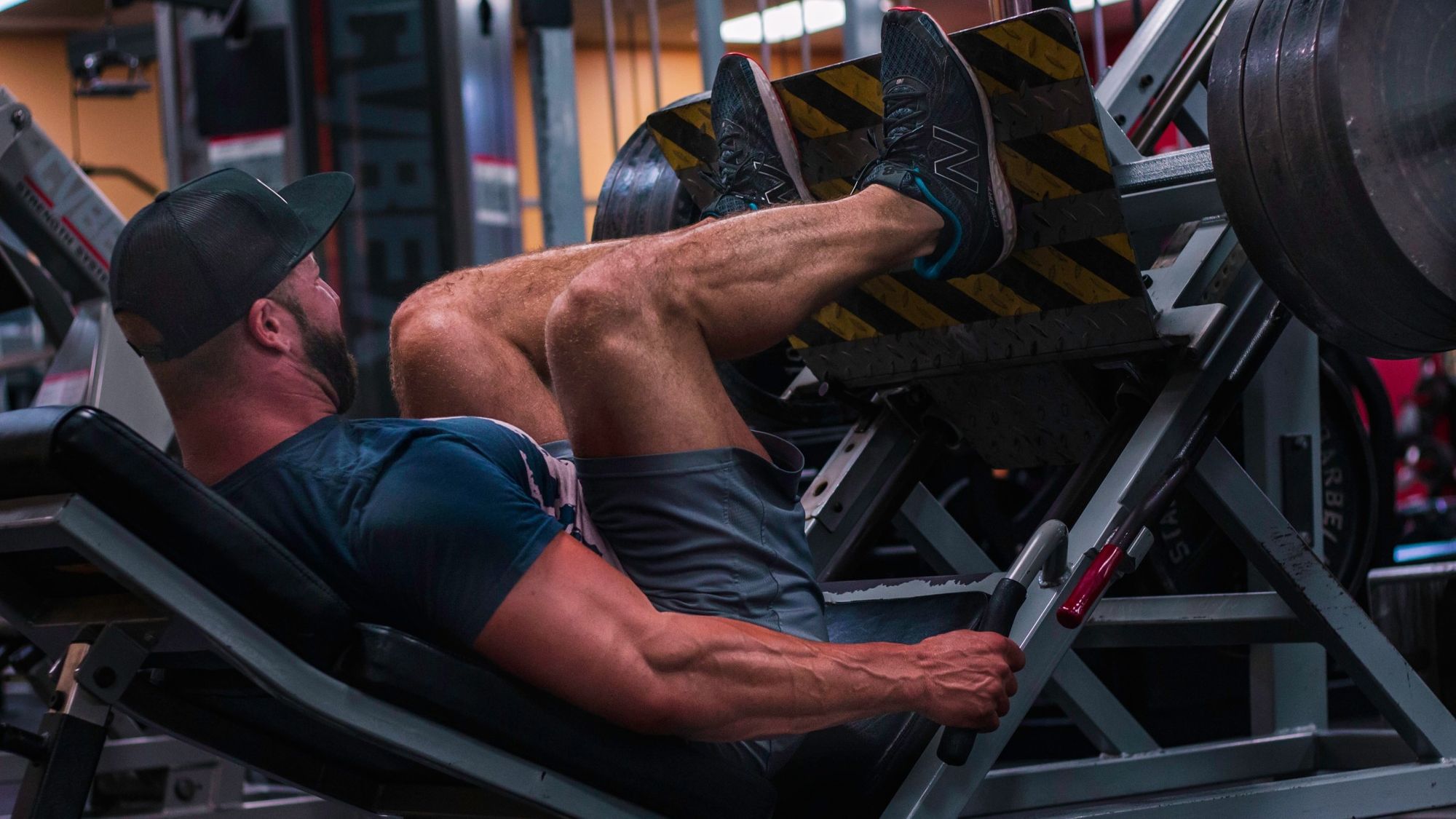Herbs To Boost Testosterone - You Didn't Know About
There are plenty of testosterone supplements out there in the market. But do they work? Can you actually boost your testosterone - at all? We explore here.

Like it or not, testosterone is the foundation of your (for lack of a better word) 'manhood' ?
It affects your sex drive, ability to produce semen on demand, and even penis size. And if you’re trying to put on muscle mass? Yep, testosterone has a role to play in that too. But don’t get the wrong idea.
More than just enabling you to achieve an impressive physique, and performance in bed, having a good supply of testosterone is crucial for your general health and wellbeing.
Research shows that men with low testosterone levels face an increased risk of prostate cancer, heart disease, and even death! Given testosterone's far-reaching implications on the male body, is it a surprise to see Google returning nearly 12 million (!) search results for the term 'testosterone booster'?
And let's be honest. If you clicked on this article… You likely searched for this article after realizing that your testosterone levels decline every 10 years – usually 1 to 2% yearly past age 30.
So. We’ve come to the crucial question ever: “Can you rally against the effects of age and boost your testosterone levels, like what so many supplement companies out there claim?”
As usual, let’s explore.
Do testosterone boosters work?
Take a walk down the neighborhood supplement store, and you’ll undoubtedly find rows of shady-looking bottles claiming to boost testosterone. (You’ll know you’re in the right category when you see labels spotting men – in varying degrees of undress – flexing in the front double biceps pose.)
Flip to the back of these bottles, and you'll find plenty of overlap between their ingredient lists.
The majority of them include D-aspartic acid, Tribulus Terrestris, fenugreek, DHEA, and ashwagandha.
Now, that's good, right? Having plenty of overlap means the industry is at least agreed on the efficacy of these ingredients – meaning that they do work?
Unfortunately, no. Here’s the research to back it up:
D-aspartic acid
A naturally occurring amino acid. It is believed to boost testosterone production by increasing levels of luteinizing hormone, which stimulates Leydig cells in the testes (which are responsible for the biosynthesis and secretion of androgens). However, many of the studies found that D-aspartic acid exerts no effect – at all – on testosterone, body composition, or even strength. In other words: it’s frankly a waste of your money.
Tribulus Terrestris
An herb that has been used medicinally in Traditional Chinese Medicine and Indian Ayurveda medicine to enhance libido. However, modern-day research has quickly smacked down any possibilities that this herb could boost testosterone. It has been found to increase testosterone levels in animals – but as we all know, this may not translate to the same effect on humans. And research proves this point exactly.
Fenugreek
An herb used as a traditional natural remedy for many ailments. Studies reporting on the effect of fenugreek on testosterone levels have been mixed. Even then, though, the validity and reliability of those studies which have reported positive findings can be called into question. That’s because these studies were sponsored by companies that had invested in the fenugreek products being tested. This would have undoubtedly affected the study results.
DHEA
A hormone that’s primarily produced by your adrenal glands. Because it helps manages testosterone and estrogen levels, many believe that supplementing with DHEA can help boost testosterone. However, similar to fenugreek, the research results are mixed. A few studies have found an increase in testosterone levels following DHEA supplementation, while others have not.
Ashwagandha
Familiar with adaptogens? Then you must have heard of ashwagandha. It is believed that ashwagandha can increase the body's testosterone production by lowering stress and anxiety levels (both arguably testosterone-killers). There is indeed some evidence showing this – but as with all other 'testosterone boosters', it is not all that convincing.
Besides, suppose ashwagandha only works by lowering stress levels. In that case, one could argue that there are plenty of other, more effective, and low-cost stress-reduction methods available (e.g. meditation and exercise).
So... There's no way to boost my testosterone levels?
Apparently… Even the best testosterone booster out there doesn’t work. Ouch. Well, don’t despair just yet!
Yes, your testosterone levels do fall naturally as you get older.
But you can mitigate how much it drops by consciously living a healthy lifestyle.
The truth is that a poor lifestyle can not only mimic the symptoms of low testosterone (when you actually have perfectly normal levels) – but can cause low testosterone as well.
Tweak the following aspects of your lifestyle for a natural increase in testosterone:
• Take care of your nutrition – Make sure you’re eating nutritious, well-balanced foods that are high in magnesium (e.g. fish and brown rice), zinc (e.g. legumes and seafood), and vitamin D (e.g. red meat and egg yolks). These vitamins and minerals have been shown to bring testosterone levels up and play a myriad of crucial functions in the body – so you don't want to be deficient in them!
• Get enough sleep – The majority of daily testosterone release in your body occurs when you’re asleep. Disrupted and/or a lack of sleep has been shown to impact testosterone levels negatively. So, you want to make sure you're turning into bed as early as possible to get at least 7 hours of sleep – nightly.
• Stay physically active – Exercise is one of the most effective ways of increasing your testosterone levels. Hands down. There's no doubt about it; in fact, plenty of research shows that physical activity boosts short-term and long-term levels. Note that resistance training (and lifting heavy weights in general) appears to have the most significant impact on testosterone levels, even more than cardio.
Need help staying motivated for your workouts?
And if you need help with staying motivated for your workouts… We’ve got just the thing for you.
GymStreak is an AI-powered workout tracker that not only optimizes your programs to your needs but also comes complete with a supportive community that'll get you to your best shape possible.
If you’re ready to take your testosterone levels to a new high (safely and effectively)… Download it now.
Get GymStreakReferences
Brilla, L. R., & Haley, T. F. (1992). Effect of magnesium supplementation on strength training in humans. Journal of the American College of Nutrition, 11(3), 326–329. https://doi.org/10.1080/07315724.1992.10718233
Childs, E., & de Wit, H. (2014). Regular exercise is associated with emotional resilience to acute stress in healthy adults. Frontiers in Physiology, 5. https://doi.org/10.3389/fphys.2014.00161
Cohen, J., Nassau, D. E., Patel, P., & Ramasamy, R. (2020). Low Testosterone in Adolescents & Young Adults. Frontiers in Endocrinology, 10. https://doi.org/10.3389/fendo.2019.00916
Goyal, M., Singh, S., Sibinga, E. M. S., Gould, N. F., Rowland-Seymour, A., Sharma, R., Berger, Z., Sleicher, D., Maron, D. D., Shihab, H. M., Ranasinghe, P. D., Linn, S., Saha, S., Bass, E. B., & Haythornthwaite, J. A. (2014). Meditation Programs for Psychological Stress and Well-being: A Systematic Review and Meta-analysis. JAMA Internal Medicine, 174(3), 357–368. https://doi.org/10.1001/jamainternmed.2013.13018
Kilic, M., Baltaci, A. K., Gunay, M., Gökbel, H., Okudan, N., & Cicioglu, I. (2006). The effect of exhaustion exercise on thyroid hormones and testosterone levels of elite athletes receiving oral zinc. Neuro Endocrinology Letters, 27(1–2), 247–252.
Kraemer, W. J., Staron, R. S., Hagerman, F. C., Hikida, R. S., Fry, A. C., Gordon, S. E., Nindl, B. C., Gothshalk, L. A., Volek, J. S., Marx, J. O., Newton, R. U., & Häkkinen, K. (1998). The effects of short-term resistance training on endocrine function in men and women. European Journal of Applied Physiology and Occupational Physiology, 78(1), 69–76. https://doi.org/10.1007/s004210050389
Kumagai, H., Zempo-Miyaki, A., Yoshikawa, T., Tsujimoto, T., Tanaka, K., & Maeda, S. (2016). Increased physical activity has a greater effect than reduced energy intake on lifestyle modification-induced increases in testosterone. Journal of Clinical Biochemistry and Nutrition, 58(1), 84–89. https://doi.org/10.3164/jcbn.15-48
Leproult, R., & Van Cauter, E. (2011). Effect of 1 Week of Sleep Restriction on Testosterone Levels in Young Healthy MenFREE. JAMA, 305(21), 2173–2174. https://doi.org/10.1001/jama.2011.710
Libè, R., Barbetta, L., Dall’Asta, C., Salvaggio, F., Gala, C., Beck-Peccoz, P., & Ambrosi, B. (2004). Effects of dehydroepiandrosterone (DHEA) supplementation on hormonal, metabolic and behavioral status in patients with hypoadrenalism. Journal of Endocrinological Investigation, 27(8), 736–741. https://doi.org/10.1007/BF03347515
Maheshwari, A., Verma, N., Swaroop, A., Bagchi, M., Preuss, H. G., Tiwari, K., & Bagchi, D. (2017). Efficacy of FurosapTM, a novel Trigonella foenum-graecum seed extract, in Enhancing Testosterone Level and Improving Sperm Profile in Male Volunteers. International Journal of Medical Sciences, 14(1), 58–66. https://doi.org/10.7150/ijms.17256
Martina, V., Benso, A., Gigliardi, V. R., Masha, A., Origlia, C., Granata, R., & Ghigo, E. (2006). Short-term dehydroepiandrosterone treatment increases platelet cGMP production in elderly male subjects. Clinical Endocrinology, 64(3), 260–264. https://doi.org/10.1111/j.1365-2265.2006.02454.x
Melville, G. W., Siegler, J. C., & Marshall, P. W. M. (2017). The effects of d-aspartic acid supplementation in resistance-trained men over a three month training period: A randomised controlled trial. PLoS ONE, 12(8). https://doi.org/10.1371/journal.pone.0182630
Pilz, S., Frisch, S., Koertke, H., Kuhn, J., Dreier, J., Obermayer-Pietsch, B., Wehr, E., & Zittermann, A. (2011). Effect of vitamin D supplementation on testosterone levels in men. Hormone and Metabolic Research = Hormon- Und Stoffwechselforschung = Hormones Et Metabolisme, 43(3), 223–225. https://doi.org/10.1055/s-0030-1269854
Poole, C., Bushey, B., Foster, C., Campbell, B., Willoughby, D., Kreider, R., Taylor, L., & Wilborn, C. (2010). The effects of a commercially available botanical supplement on strength, body composition, power output, and hormonal profiles in resistance-trained males. Journal of the International Society of Sports Nutrition, 7, 34. https://doi.org/10.1186/1550-2783-7-34
Rao, A., Steels, E., Inder, W. J., Abraham, S., & Vitetta, L. (2016). Testofen, a specialised Trigonella foenum-graecum seed extract reduces age-related symptoms of androgen decrease, increases testosterone levels and improves sexual function in healthy aging males in a double-blind randomised clinical study. The Aging Male: The Official Journal of the International Society for the Study of the Aging Male, 19(2), 134–142. https://doi.org/10.3109/13685538.2015.1135323
Roaiah, M. F., Elkhayat, Y. I., Saleh, S. F. G. D., & Salam, M. A. A. E. (2017). Prospective Analysis on the Effect of Botanical Medicine (Tribulus terrestris) on Serum Testosterone Level and Semen Parameters in Males with Unexplained Infertility. Journal of Dietary Supplements, 14(1), 25–31. https://doi.org/10.1080/19390211.2016.1188193
Rodgers, L. J., Schriefer, J. H. M., Gunnels, T. A., & Bloomer, R. J. (2015). Impact of a Multi-Component Dietary Supplement on Blood Testosterone, Nitrate/Nitrite and Physical Performance in Resistance-Trained Men. British Journal of Medicine & Medical Research, 11(1), 1–11.
Steels, E., Rao, A., & Vitetta, L. (2011). Physiological aspects of male libido enhanced by standardized Trigonella foenum-graecum extract and mineral formulation. Phytotherapy Research: PTR, 25(9), 1294–1300. https://doi.org/10.1002/ptr.3360
Timón Andrada, R., Maynar Mariño, M., Muñoz Marín, D., Olcina Camacho, G. J., Caballero, M. J., & Maynar Mariño, J. I. (2007). Variations in urine excretion of steroid hormones after an acute session and after a 4-week programme of strength training. European Journal of Applied Physiology, 99(1), 65–71. https://doi.org/10.1007/s00421-006-0319-1
Walther, A., & Seuffert, J. (2020). Testosterone and Dehydroepiandrosterone Treatment in Ageing Men: Are We All Set? The World Journal of Men’s Health, 38(2), 178–190. https://doi.org/10.5534/wjmh.190006
Wankhede, S., Langade, D., Joshi, K., Sinha, S. R., & Bhattacharyya, S. (2015). Examining the effect of Withania somnifera supplementation on muscle strength and recovery: A randomized controlled trial. Journal of the International Society of Sports Nutrition, 12, 43. https://doi.org/10.1186/s12970-015-0104-9
Willoughby, D. S., Spillane, M., & Schwarz, N. (2014). Heavy Resistance Training and Supplementation With the Alleged Testosterone Booster Nmda has No Effect on Body Composition, Muscle Performance, and Serum Hormones Associated With the Hypothalamo-Pituitary-Gonadal Axis in Resistance-Trained Males. Journal of Sports Science & Medicine, 13(1), 192–199.

